Intro
Discover the 2nd trimester, starting at week 13, and learn about fetal development, pregnancy symptoms, and prenatal care during this critical period of gestation and fetal growth.
As the first trimester comes to a close, pregnant individuals and their families are often filled with excitement and anticipation for the journey ahead. The 2nd trimester, which begins at week 13, marks a significant milestone in pregnancy, characterized by profound physical and emotional changes. This period is crucial for fetal development, and it's essential for expectant mothers to be aware of the transformations taking place within their bodies. The 2nd trimester is often referred to as the "golden period" of pregnancy, as the initial symptoms of the first trimester start to subside, and the belly begins to show.
During this time, the fetus grows and develops at an incredible rate, and the risk of miscarriage decreases significantly. The 2nd trimester is also an opportunity for pregnant individuals to bond with their unborn baby, as they start to feel the baby's movements and kicks. This period is also crucial for prenatal care, as regular check-ups and screenings can help identify any potential complications early on. Expectant mothers can take advantage of this period to educate themselves about pregnancy, childbirth, and parenthood, preparing themselves for the challenges and joys that lie ahead.
As the 2nd trimester progresses, pregnant individuals can expect to experience a range of physical and emotional changes. The growing belly can lead to back pain, stretch marks, and skin changes, while the hormonal fluctuations can cause mood swings, fatigue, and food cravings. Despite these challenges, the 2nd trimester is a time of great excitement and anticipation, as the pregnancy becomes more visible, and the expectant mother starts to feel more connected to her unborn baby. With proper care, support, and education, pregnant individuals can navigate the 2nd trimester with confidence, preparing themselves for a healthy and happy pregnancy.
Physical Changes During the 2nd Trimester
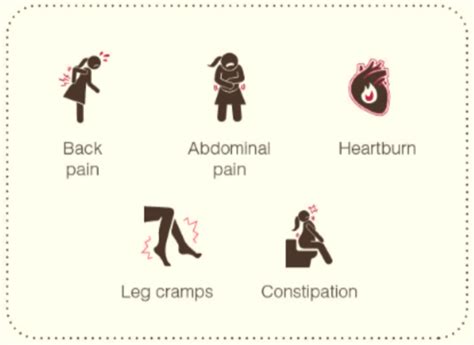
Other physical changes during the 2nd trimester include:
- Weight gain: Expectant mothers can expect to gain around 1-2 pounds per week, as the fetus grows and the body stores fat for milk production.
- Hair and nail growth: The increased levels of estrogen and progesterone can lead to faster hair and nail growth.
- Dizziness and lightheadedness: The growing uterus can put pressure on the blood vessels, leading to dizziness and lightheadedness.
- Braxton Hicks contractions: Mild contractions that prepare the uterus for labor and can be triggered by dehydration or a full bladder.
Managing Physical Changes
Managing physical changes during the 2nd trimester requires a combination of self-care, prenatal care, and lifestyle modifications. Expectant mothers can take steps to alleviate back pain, such as practicing good posture, exercising regularly, and using heat or cold therapy. Wearing comfortable clothing, staying hydrated, and avoiding heavy lifting can also help reduce discomfort.It's essential for pregnant individuals to prioritize prenatal care, attending regular check-ups and screenings to monitor the fetus's growth and development. A balanced diet, rich in essential nutrients, can also support the health and well-being of both the mother and the baby. By staying informed, seeking support, and taking care of their physical and emotional health, expectant mothers can navigate the 2nd trimester with confidence and prepare themselves for a healthy and happy pregnancy.
Emotional Changes During the 2nd Trimester
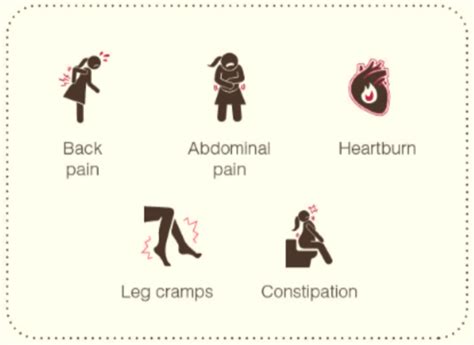
Other emotional changes during the 2nd trimester include:
- Fear and anxiety: Concerns about the baby's health, pregnancy complications, and parenthood can lead to fear and anxiety.
- Mood swings: Hormonal fluctuations can cause rapid mood changes, leading to irritability, sadness, and emotional reactivity.
- Emotional reactivity: Pregnant individuals may become more sensitive and reactive, responding intensely to stimuli and emotions.
Coping with Emotional Changes
Coping with emotional changes during the 2nd trimester requires a combination of self-care, social support, and professional help. Expectant mothers can take steps to manage stress and anxiety, such as practicing relaxation techniques, exercising regularly, and engaging in activities that bring joy and fulfillment. Building a support network of family, friends, and healthcare providers can also provide emotional support and reassurance.It's essential for pregnant individuals to prioritize their mental health, seeking professional help if they experience persistent or severe emotional distress. A mental health professional can provide guidance, support, and therapy to help expectant mothers navigate the emotional challenges of the 2nd trimester. By acknowledging and addressing emotional changes, pregnant individuals can cultivate a positive and resilient mindset, preparing themselves for the challenges and joys of parenthood.
Fetal Development During the 2nd Trimester
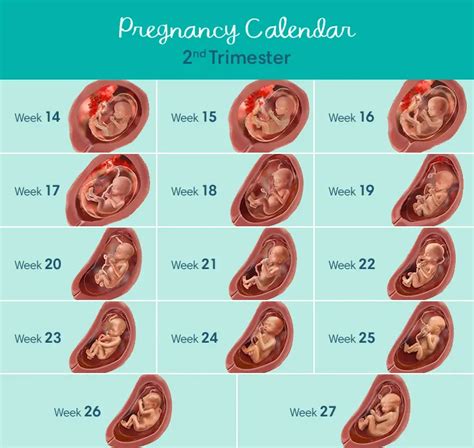
Other significant developments during the 2nd trimester include:
- Motor skills: The fetus starts to develop its motor skills, including swallowing, kicking, and sucking.
- Sensory development: The baby's senses become more refined, allowing it to detect light, sound, and touch.
- Brain development: The fetus's brain starts to mature, developing neural connections and synapses.
Monitoring Fetal Development
Monitoring fetal development during the 2nd trimester is crucial for ensuring the baby's health and well-being. Regular prenatal check-ups and screenings can help identify any potential complications or developmental delays. Ultrasound scans can provide valuable insights into the fetus's growth and development, allowing healthcare providers to monitor the baby's progress and detect any potential issues.Expectant mothers can also take steps to support fetal development, such as maintaining a balanced diet, staying hydrated, and avoiding harmful substances. A healthy lifestyle, combined with regular prenatal care, can help ensure the best possible outcomes for the baby. By prioritizing fetal development and monitoring the baby's growth, pregnant individuals can feel more confident and prepared for the arrival of their newborn.
Prenatal Care During the 2nd Trimester
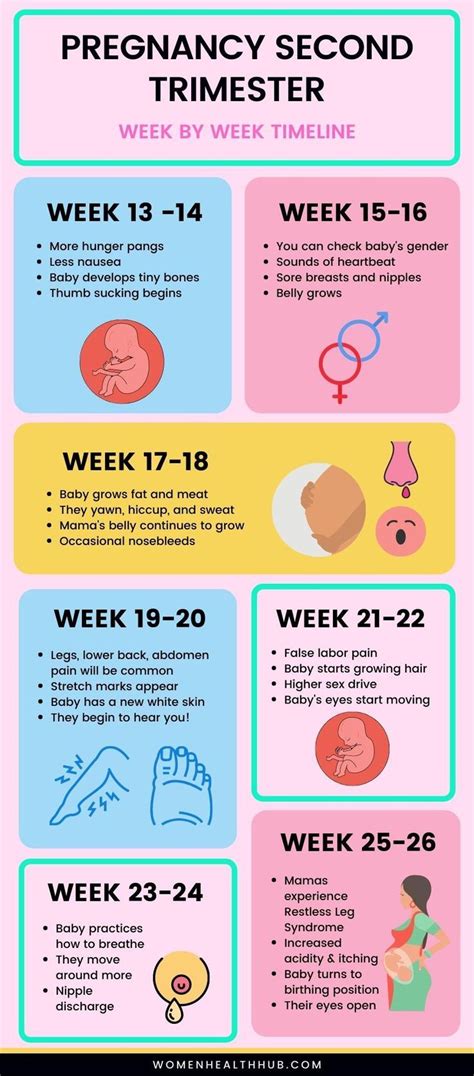
During these appointments, healthcare providers will:
- Monitor the baby's heart rate and movement
- Measure the mother's blood pressure and weight
- Perform ultrasound scans to monitor fetal development
- Screen for gestational diabetes and other complications
Importance of Prenatal Care
Prenatal care is crucial for ensuring the health and well-being of both the mother and the baby. Regular check-ups and screenings can help identify potential complications early on, allowing healthcare providers to take proactive steps to prevent or manage these issues. Prenatal care can also provide expectant mothers with valuable insights into their pregnancy, helping them feel more informed and prepared for the challenges and joys of parenthood.By prioritizing prenatal care, pregnant individuals can take control of their health and well-being, making informed decisions about their pregnancy and parenting journey. A healthy pregnancy, combined with proper prenatal care, can help ensure the best possible outcomes for the baby, setting the stage for a happy and healthy start to life.
Preparation for Parenthood
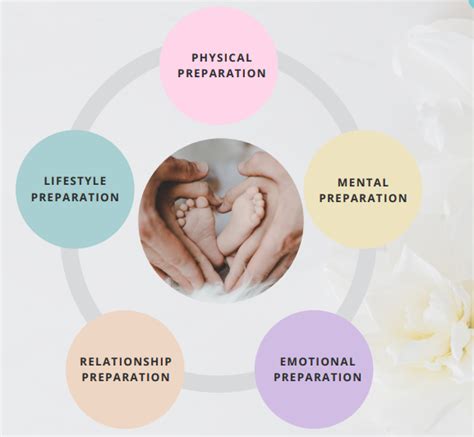
Expectant mothers can take steps to prepare for parenthood, such as:
- Reading books and online resources about pregnancy, childbirth, and parenting
- Attending prenatal classes and workshops
- Building a support network of family, friends, and fellow expectant mothers
- Preparing the home and nursery for the baby's arrival
Building a Support Network
Building a support network is essential for new parents, as it can provide emotional support, practical help, and reassurance during the challenges of parenthood. Expectant mothers can start building their support network by: * Connecting with fellow expectant mothers and new parents * Joining online communities and forums * Attending prenatal classes and workshops * Reaching out to family and friends for help and supportBy building a strong support network, pregnant individuals can feel more confident and prepared for the arrival of their baby, knowing that they have a team of loved ones and professionals to rely on during the ups and downs of parenthood.
What are the most common symptoms during the 2nd trimester?
+The most common symptoms during the 2nd trimester include back pain, stretch marks, skin changes, mood swings, and food cravings. Expectant mothers may also experience dizziness, lightheadedness, and Braxton Hicks contractions.
How can I manage back pain during the 2nd trimester?
+Expectant mothers can manage back pain during the 2nd trimester by practicing good posture, exercising regularly, and using heat or cold therapy. Wearing comfortable clothing, staying hydrated, and avoiding heavy lifting can also help reduce discomfort.
What are the importance of prenatal care during the 2nd trimester?
+Prenatal care is essential during the 2nd trimester, as regular check-ups and screenings can help identify any potential complications or developmental delays. Prenatal care can also provide expectant mothers with valuable insights into their pregnancy, helping them feel more informed and prepared for the challenges and joys of parenthood.
How can I prepare for parenthood during the 2nd trimester?
+Expectant mothers can prepare for parenthood during the 2nd trimester by educating themselves about pregnancy, childbirth, and parenting, building a support network, and preparing the home and nursery for the baby's arrival. Attending prenatal classes and workshops, reading books and online resources, and connecting with fellow expectant mothers can also help.
What are the benefits of building a support network during the 2nd trimester?
+Building a support network during the 2nd trimester can provide emotional support, practical help, and reassurance during the challenges of parenthood. A strong support network can help expectant mothers feel more confident and prepared for the arrival of their baby, knowing that they have a team of loved ones and professionals to rely on.
As we approach the final stages of pregnancy, it's essential to reflect on the journey so far and prepare for the exciting times ahead. The 2nd trimester is a critical period of growth and development, and by prioritizing physical and emotional health, fetal development, and prenatal care, expectant mothers can set themselves up for a healthy and happy pregnancy. We invite you to share your thoughts, experiences, and questions about the 2nd trimester, and we encourage you to reach out to your healthcare provider for personalized guidance and support. Together, we can navigate the wonders of pregnancy and prepare for the joy of parenthood.
